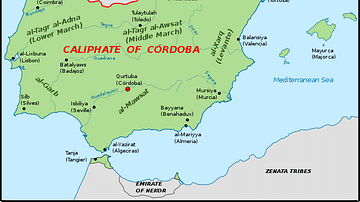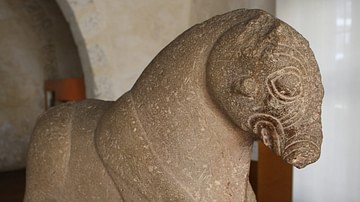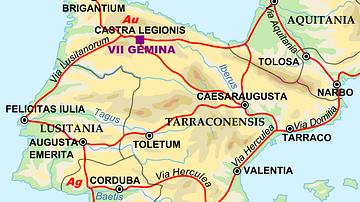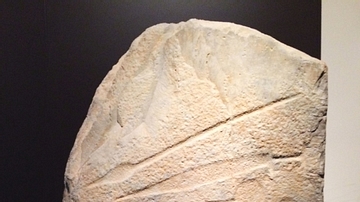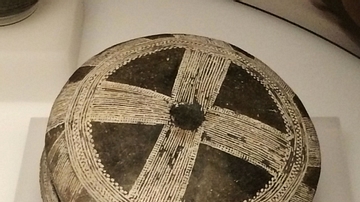Illustration
This verraco of a pig is made of granite and dates from the 3rd-1st century BCE. It was created by members of the Vettonian culture of ancient Iberia and was found in the Spanish province of Ávila. Verracos were sculptures of male beasts — usually standing pigs or bulls — which first appeared in the western part of the Iberian Peninsula in the 4th century BCE. They are typically made from granite. There are several theories regarding their function, but nowadays they are widely believed to indicated grazing areas and cattle routes controlled by the "oppida" (large regional settlements). Positioned at the entrance or in a prominent location, their presence served to indicate and protect pastures. Verracos also had a funerary purpose in the latter days of this period when they were used and engraved with names in Latin. (Museo Arqueológico Nacional, Madrid)
About the Author
Cite This Work
APA Style
Wiener, J. B. (2017, October 31). Verrco Sculpture from Ancient Iberia. World History Encyclopedia. Retrieved from https://www.worldhistory.org/image/7507/verrco-sculpture-from-ancient-iberia/
Chicago Style
Wiener, James Blake. "Verrco Sculpture from Ancient Iberia." World History Encyclopedia. Last modified October 31, 2017. https://www.worldhistory.org/image/7507/verrco-sculpture-from-ancient-iberia/.
MLA Style
Wiener, James Blake. "Verrco Sculpture from Ancient Iberia." World History Encyclopedia. World History Encyclopedia, 31 Oct 2017, https://www.worldhistory.org/image/7507/verrco-sculpture-from-ancient-iberia/. Web. 23 Apr 2025.



